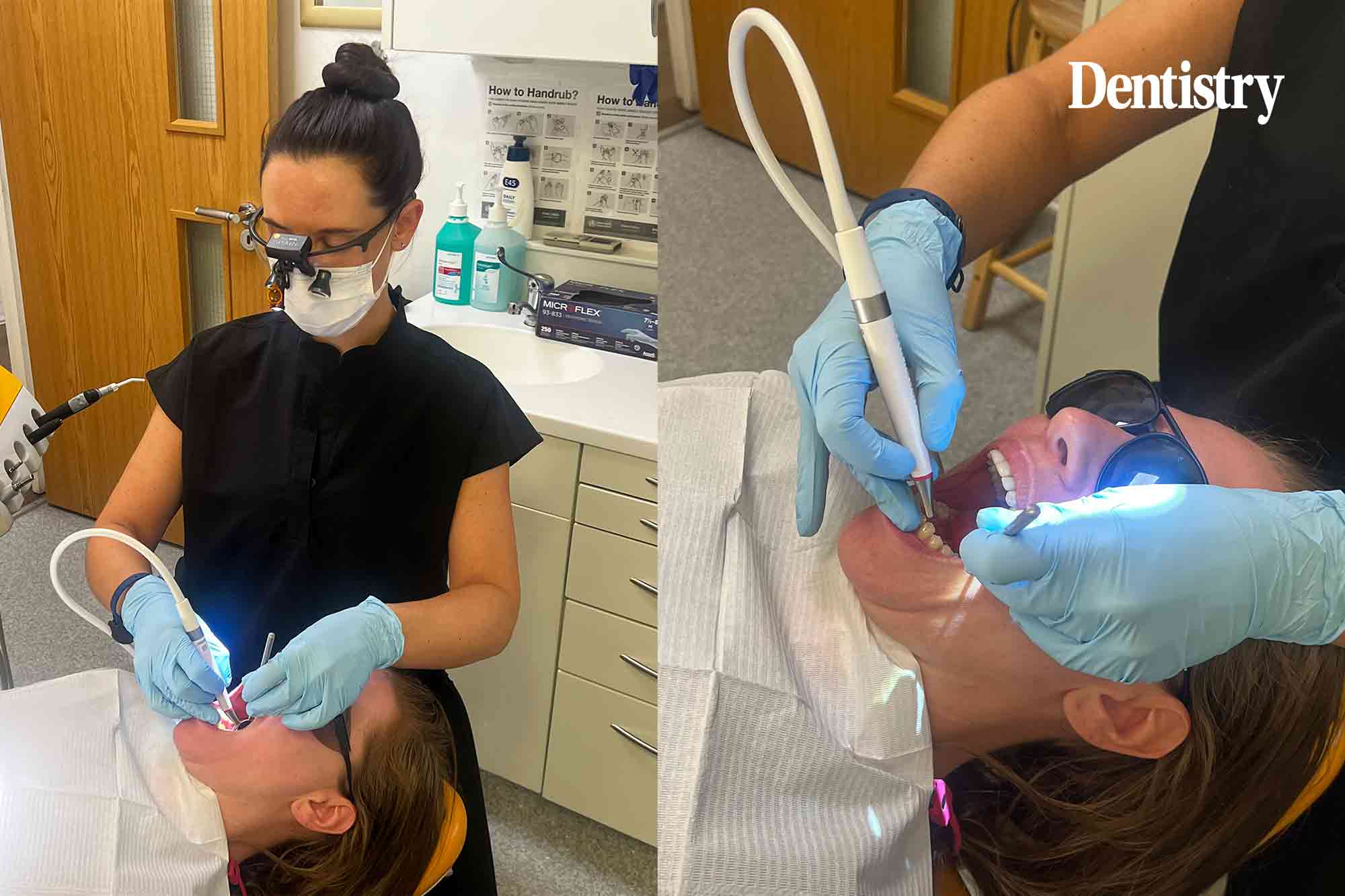
Chapped and sore hands are a common occurrence in dentistry. Anna Middleton considers why finding the right gloves is important – both for your health and in clinic.
The hands of dental professionals undergo daily wear and tear and this comes with occupation-related risk to skin health as well physical fatigue. But, much like the gold standard in dental care, prevention is better than cure.
Sound protective measures are a long-term investment in any career in dentistry – after all, hands are the most invaluable tools.
Hand health
Hand hygiene is an integral part of preventing infection in clinical dental practice, but it can be detrimental – the resulting skin damage well documented.
With repeated exposure to abrasive chemicals and irritants, as well as saliva and blood, the need for frequent hand washing can lead to dryness and even contact dermatitis, with the need to wear gloves sometimes leading to Latex allergy. All of which are a concern for those working within the profession.
Indeed, work-related contact dermatitis is the most common form of skin disease in the dental team, reports the Health and Safety Executive (www.hse.gov.uk/skin/employ/highrisk/dental.htm).
According to HTM 01-05 Decontamination in primary care dental practices: ‘Hand hygiene is crucial in preventing the spread of infection and the recontamination of surgical instruments and devices. Clean hands are an essential counterpart to the use of gloves. Neither measure is a substitute for the other.’
Gloves then help to protect against these threats as they act as a physical barrier.
However, whilst the wearing of gloves might mitigate against the risks of exposure to pathogens and the spread of disease, they do come with their own challenges.
Hand fatigue
Hand fatigue is also a common problem in dentistry. Whilst the tasks of clinical practice demand hand precision and finite repetitive movements, gloves can often restrict movement of the hand, requiring extra muscle effort to perform tasks. This can result in carpal tunnel syndrome.
Therefore, anything ergonomically designed to support musculoskeletal health has huge appeal. To help reduce risks, practitioners should:
- Ensure that the instruments they use reduce stress
- Take regular breaks
- Undertake regular hand-stretching exercises between appointments
- Utilise hand-stabilising techniques
- Invest in their own health and wellbeing with protective products that reduce fatigue.
Glove options
When it comes to glove purchasing, practices very often buy in bulk and opt for any that meet infection control requirements.
But choosing what gloves to wear for the individual tasks in practice isn’t always straightforward. Many people form allergies to glove materials, especially if these are worn on a regular basis. Latex allergies are particularly common among healthcare workers.
Other types of gloves can also cause allergies, and those who suffer from asthma may have adverse reactions.
London Hygienist
Anna Middleton is a dental therapist and founder of London Hygienist.
She was unfortunate enough to suffer with muscle fatigue when she first qualified, with sore wrists a concern due to hand scaling.
These days, chapped and sore hands she tries to keep at bay – ‘I only use nitrile-based gloves and make sure I give my hands some TLC in the form of good hand creams and oils’, and her chosen delivery of hygiene care now mitigates against the risks to hand muscle health.
Hand-stabilising techniques, stretches and exercises help prevent damage and Anna has recently started using Cordeze to help stabilise the cords from her Airflow and Piezon scaler. She also always uses a finger rest.
‘I have a dental nurse to assist, too,’ she says, ‘so I am not holding onto the suction tubes.’ Because she uses guided biofilm therapy that minimises the use of power and hand instrumentation, her hands and wrists no longer suffer.
She recommends hand stretches and massages to her colleagues, but adds: ‘If you do use hand scalers, then make sure they have a good grip and handle as well as being well sharpened.’
Meeting expectations
Anna believes that wearing the right gloves is also key to a comfortable delivery. Ansell offers two ranges of gloves that meet her expectations.
Ergoform Technology Gloves are engineered to reduce the strain and impact of repetitive tasks to mitigate the risks of RSI and carpal tunnel syndrome. And Ansell’s accelerator-free range are specifically suited to clinicians who suffer from allergies.
Both are nitrile, but the accelerator gloves will also prevent chemical allergies that are a result of the glove manufacturing process.
Anna really likes them. ‘They fit like a glove,’ she laughs. ’But, seriously, they are very soft inside. I love the slightly textured fingertips, as they provide extra grip when the gloves are wet.’
She believes many colleagues neglect their own health at times because they are so heavily focused on their patient care. Since Covid-19, there has been a huge spotlight shone on the mental wellness of dental teams.
But the physical toll of delivering care should never be overlooked.
Just as important
‘It’s never intentional, but it happens,’ she says. ‘I suffer with my neck and back once fatigue kicks in and it is easy to compromise your position and so on when very busy or tired.
‘Purchasing the best products to reduce physical wear and tear and prevent damage to skin is arguably just as important as finding the best tools or kit for treatment delivery.
‘Excellent lighting, highly efficient loupes and ergonomically designed, skin-friendly gloves all help to mitigate against the physical risks to our health.
‘Factor in regular breaks and hand exercises and we can do a lot to prevent those occupational health hazards. After all, if we physically cannot practise, then what’s the point of any cutting-edge dental technology?’
For more information visit www.dentalsky.com.



